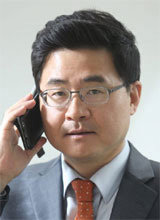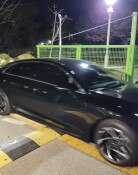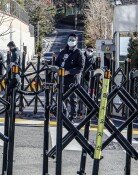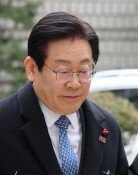Glorious past has no ground to stand on in national security
Glorious past has no ground to stand on in national security
Posted July. 31, 2020 07:31,
Updated July. 31, 2020 07:31

During Monday’s confirmation hearing on Park Jie-won, the new director of the National Intelligence Service, questions ensued over his view and policy direction on North Korea. Disclosing a copy of an alleged secret agreement signed by Park, Rep. Joo Ho-young of the United Future Party pushed him, asking whether it was a duty of NIS chief to untangle inter-Korean issues voluntarily and if such duty was stipulated in any NIS law at all. It was a just response to Park’s remarks that his appointment reflects the people’s hope for improving inter-Korean relations as his main responsibilities entail arresting spies and conducting reconnaissance against the North, not obsessing over dialogues with Pyongyang.
Rep. Cho Tae-yong of the Untied Future Party accused Park of arranging the inter-Korean summit through an illegal remittance to the North in the past, and Park quipped that he was proud of making possible the first inter-Korean talks in half a century. The new director of the intelligence service made a verbose advertisement on the Democratic party’s appeasement policy towards the North, trying to dispel misunderstanding about Kim Dae-jung’s sunshine policy and highlight how the June 15 inter-Korean summit helped wipe out skepticism over his policy direction. He still seemed to glorify the summit meeting from 20 years ago, which was arranged based on the 500 million-dollar fund from Hyundai Group.
Unification Minister Lee In-young was more outright in glorifying the past. “We need to note our experience from the Kim Dae-jung and Roh Moo-hyun administrations that made it possible to persuade international community and engage North Korea by improving relations with the North and tackling its nuclear program at the same time,” said Minister Lee in the hearing’s opening statement, stressing restoring the inter-Korean relations should be the starting line to make progress towards the two-pronged approach. Lee, who vowed to put a steppingstone in place if not an entire bridge of peace with the North when appointed as Unification Minister, made it clear that his favorable view on Pyongyang is older than Park’s. He was quoting an 80s folksong, likening Seoul and Pyongyang to a man and woman in love.
Admittedly, they all enjoyed glorious years in the past. The grassroots campaign for unification under the slogan “Go to the North, come to the South” in the 80s once received public support as way to topple the military juntas under Presidents Chun Doo-hwan and Roh Tae-woo. The discourse of nationalism worked as political tool to call for public solidarity against an undemocratic nation. Kim Dae-jung’s sunshine policy, an attempt to shift the structure of confrontation between the two Koreas, catered to the interests of Kim Jong Il, the then leader of the North, who sought to overcome the March of Suffering, a famine that blighted the North in the early 90s. The political gains Seoul achieved through the betting from Chung Joo-yung, the late founder of Hyundai Group, which was aimed at making economic profits, seemed to have the power to make the farce of peace look real in the eyes of Seoul and Pyongyang.
North Korea has been on a quest to become a nuclear state since the end of the Roh Moo-hyun administration in 2008, and now the regime is acting as if they were equals with economic powerhouses such as the United States. Kim Jong Un, the third hereditary dictator of the North now with a nuclear arsenal, doesn’t seem to think of the South as partner of national cooperation nor donor of economic aid anymore. And the official in Seoul are forcing obeyance as they were dictators from the North. They still seem caught up in the good old memories, but the North is no more the country they used to know.
Suk-Ho Shin kyle@donga.com







